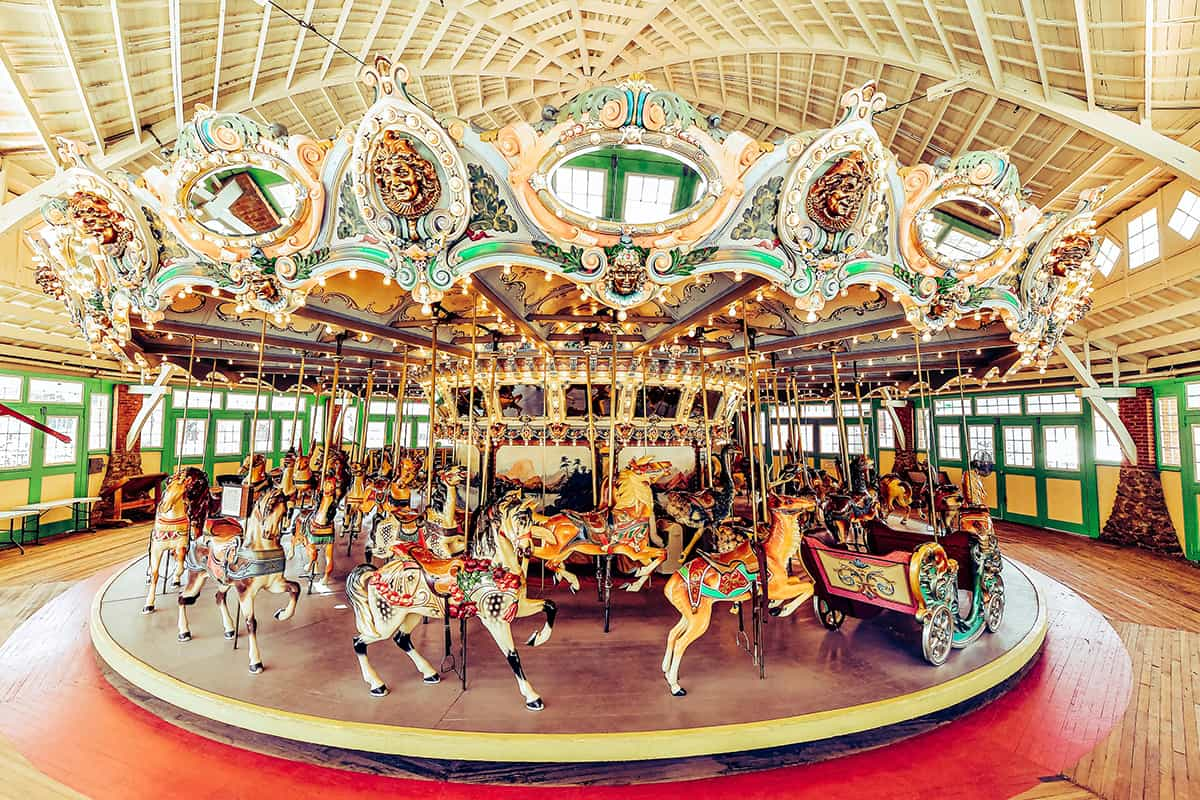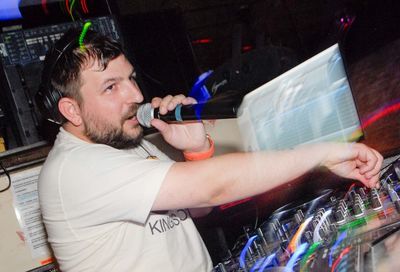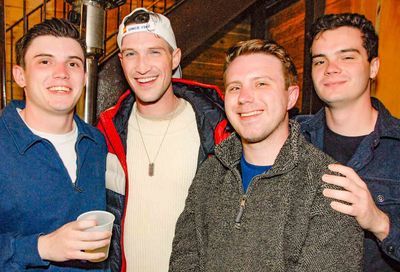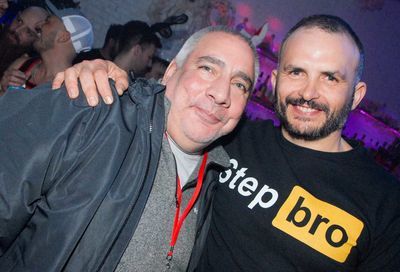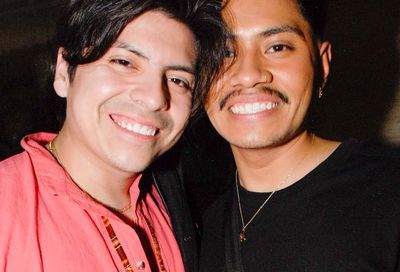“Side Show” scribe Bill Russell aims to portray the humanity in those who are different
MW: Did your experience as a child actor make you want to pursue a career as a professional actor?
RUSSELL: Yes, like everybody, I think that’s your first interest when you’re drawn to this. And I was very active in high school, in theater and in declamation, which was a big thing in South Dakota. And I won the state declamation contest a couple of times. And then I majored in theater in college. I started thinking I wanted to be an actor, but after a couple years I realized that my interest was more in writing and directing. So I transferred to a bigger college where I could have more opportunities to do that.
MW: How did you get started in your theater career?
RUSSELL: When I was in my freshman year of college, in Sioux City, Iowa, I wrote to several theaters and theater-related places on the East Coast, and I was hired by this resort in New Jersey that hired mainly theater and music majors. We did shows for the clientele at night. I had two very successful summers there, both directing and performing. And that was 60 miles from New York City, so every day off I would go into the city to see shows.
And I was particularly taken by the original production of Hair, which I think I saw seven times. Every day off I would go see Hair. And that was the musical that inspired me to write musicals. And at this resort, I met this music major from Oberlin named Janet Hood.
MW: And with Janet, you’ve also written what I’ve seen called “a poetic theatrical concert,” Elegies for Angels, Punks and Raging Queens, first performed in 1990.
RUSSELL: That was inspired partly by [Edgar Lee Masters’s] Spoon River Anthology. It’s a series of monologues. Free-verse monologues by characters who’ve died from AIDS, interspersed with songs. And that score is by Janet Hood. We’re writing our fifth musical together right now. Elegies is done a lot in Europe, especially in the U.K., because it had a higher commercial profile over there.
MW: How much did AIDS affect you? Did Elegies spring from personal inspiration?
RUSSELL: Oh yeah. In ’87, AIDS was really encroaching on my circle of friends. And I knew Rock Hudson a little, and it was really getting to me. And I just felt like I had to write about it. I’ve written free verse ever since high school, and I was interested in doing a project in that form, because I’m very comfortable with it. And I had the idea of a Spoon River, but about AIDS. And I also was at the initial unveiling of the NAMES Project AIDS Memorial Quilt on the Mall in Washington. And that became sort-of the metaphor. Whereas in Spoon River, they’re all in a cemetery in Illinois, all of these characters have quilt panels. I started it almost as an exercise. I started writing these monologues based on a friend, and others who had AIDS but were still alive. And then it just started growing and I asked Janet if she’d be interested in writing songs, and we started writing songs. So that was a very intense time, from’ 87 when we started that until’93, it was in the West End.
I just directed a production of Elegies at Marymount College here in Manhattan, and we updated the script. Because unfortunately AIDS is not over yet. And the history of it is still worth reexamining. It was an extraordinary time with so many extraordinary stories, not just tragic stories but heroic stories. That’s still such a personal piece to me, and I will direct that anytime anyone asks. I love doing it.
MW: Another thing that struck me while reading your recent Playbill essay is how publicly out you are, especially when you’re back in South Dakota. You often put together cabarets of your songs and discuss the gay aspects of them, for instance, and you’ve also spoken at a local pride event. That takes a lot of courage. I’m originally from Kansas City, Mo., and I identify to an extent with your experience, but I’m not nearly as out — or I guess courageous — on return trips as you are.
RUSSELL: Well, I also have a platform. I’ve gained a fair amount of notoriety. When I go back, I do these shows where I host evenings of my songs performed by local talent. So I do have that platform, and I use it to talk about being gay. Because so many people out there especially think they don’t know any gay people. It is harder for people to come out there. But I am known in the community and I like to remind them that one of their native sons is gay.
MW: But that takes balls to put yourself out there like that. Certainly decades ago it did. It might be easier now.
RUSSELL: Well, still everywhere there’s a lot of people in the closet. I feel bad in Washington, really. Because it is a conservative town, and people have jobs where they don’t feel comfortable being out.
MW: Although it’s changed a lot in just the last decade alone. As with everywhere else.
RUSSELL: Oh yeah, no question. I mean gay marriage has changed that a lot. And the publicity. When [my partner and I] got married, which was five years ago now, I sent the announcement to all the papers in western South Dakota and eastern Wyoming, and they all printed it. And that got a lot of attention. Because it was the first gay marriage out there that at least people knew about.
MW: Has your family come around to accept you?
RUSSELL: My father, when I first came out in an interview in the ’70s with the Rapid City Journal, he didn’t speak to me for three years. But he eventually came around. He really got on well with my husband, Bruce, and we visited there several times. And he visited here a couple times. In fact he came to the Off-Broadway opening ofPageant. He died in ’92, so he never saw Side Show, but I was really happy he loved Pageant.
MW: Speaking of Pageant, that’s back Off-Broadway now, right?
RUSSELL: It just started Off-Broadway, yes. Oh Pageant is so much fun. I’m so glad it’s going to have another life. It’s a real crowd-pleaser. I’m probably best known for Side Show [in the U.S.], and in Europe I’m really best known for Elegies, both of which are more serious works. But I do have this whole comedy background.
MW: You mentioned the Passion Play and how it was organized in part by local church groups. What denomination where you, and are you still practicing?
RUSSELL: Methodist, and no. The Methodist church, I’m over them. They are so homophobic. They’re really slow to come around.
MW: They’re more middle-of-the-road, so they think of or present themselves as more progressive.
RUSSELL: Yeah, right. Right.
MW: You mentioned a new musical with Janet Hood. That’s Unexpected Joy, right? What is it about?
RUSSELL: Unexpected Joy is about gay marriage. It’s with four women, and we’ve been doing readings with Annie Golden and Lillias White — great, great performers. The plot is a little hard to describe, but I’ll try. The show is framed by a concert. It’s a memorial concert put on by the title character Joy. She and her common-law husband were a folk-rock duo that was quite successful in the late ’50s and on, and they had a daughter Rachel, though they were never married, who grew up and rebelled against their hippie musician lifestyle. And married a televangelist, and she performs on his show. They’ve always been kind of estranged, but Rachel has come for this memorial honoring her father, and brought her daughter, who has just graduated from high school. And Rachel is secretly writing songs that are at odds with her mother and father’s kind of music and message. And what Joy, the grandmother, has not told them, is that, because all these old friends are coming for this memorial concert, the next day she is getting married to her new girlfriend — who is an African-American musician. So they all have their own musical styles. And the music is either in the concert or it’s their thoughts. We see the daughter Rachel performing on her husband’s television show.
The response has been fantastic, and I’m really excited about it. And I hope it gets produced before gay marriage is such a passé issue that it doesn’t mean as much.
MW: I understand you married your husband Bruce five years ago — but at that point you had already been together a whopping 30 years. What’s the secret to the longevity?
RUSSELL: A sense of humor. We still make each other laugh all the time. And, for us, we share a lot of the same interests and passions, especially for the theater. Bruce is a very avid theatergoer, and knows a lot about the history of musical theater especially. And we see a lot of theater. I see more theater than most people I work with, I have to say. And that’s a lot because of Bruce’s interest in it.
MW: Do you have kids or pets?
RUSSELL: No, no. No kids, no pets. I travel quite a lot. Bruce also has quite a commute to his job, so he couldn’t come home at lunch to walk the dog or whatever. And neither of us really ever wanted kids, unlike many gay people. That’s nothing something we ever aspired to.
MW: But a decade or two ago you probably didn’t think you’d ever get married either.
RUSSELL: Well, that’s true. Absolutely. In fact when the whole gay marriage thing started, we were like, “Why? One of the great things about being gay is that you don’t have to buy into all of that.” But then, it just became a point where we thought it was important to do it, you know?
Side Show runs to July 13 at Kennedy Center Eisenhower Theater. Tickets are $45 to $130. Call 202-467-4600 or visit kennedy-center.org.
Pageant – The Musical, now in previews, runs at Off-Broadway’s Davenport Theatre, 354 West 45th St. New York. Tickets are $49.50 to $79.50. Call 212-239-6200 or visit Telecharge.com or pageantmusical.com.
Support Metro Weekly’s Journalism
These are challenging times for news organizations. And yet it’s crucial we stay active and provide vital resources and information to both our local readers and the world. So won’t you please take a moment and consider supporting Metro Weekly with a membership? For as little as $5 a month, you can help ensure Metro Weekly magazine and MetroWeekly.com remain free, viable resources as we provide the best, most diverse, culturally-resonant LGBTQ coverage in both the D.C. region and around the world. Memberships come with exclusive perks and discounts, your own personal digital delivery of each week’s magazine (and an archive), access to our Member's Lounge when it launches this fall, and exclusive members-only items like Metro Weekly Membership Mugs and Tote Bags! Check out all our membership levels here and please join us today!





